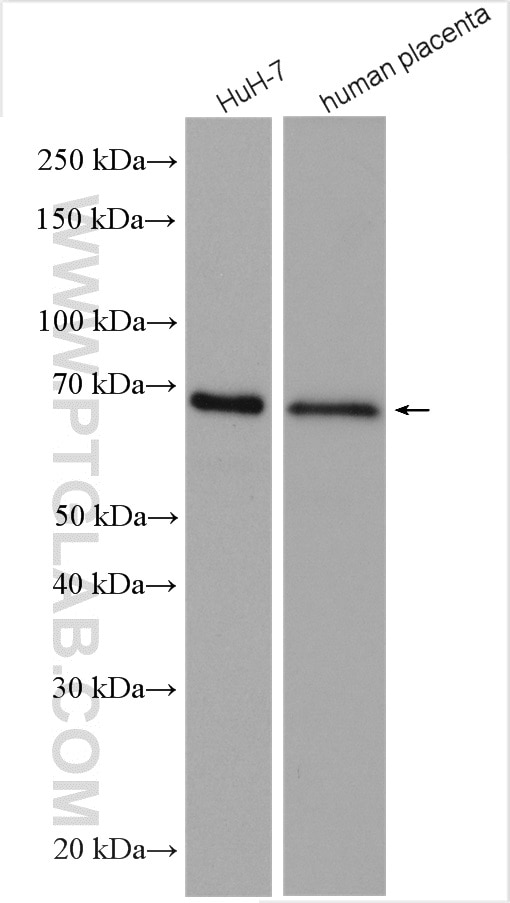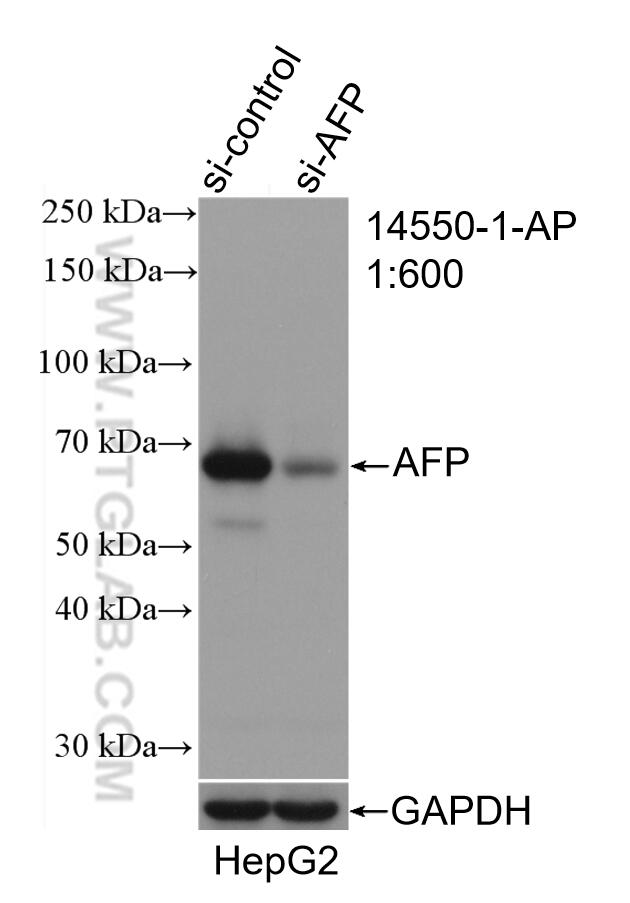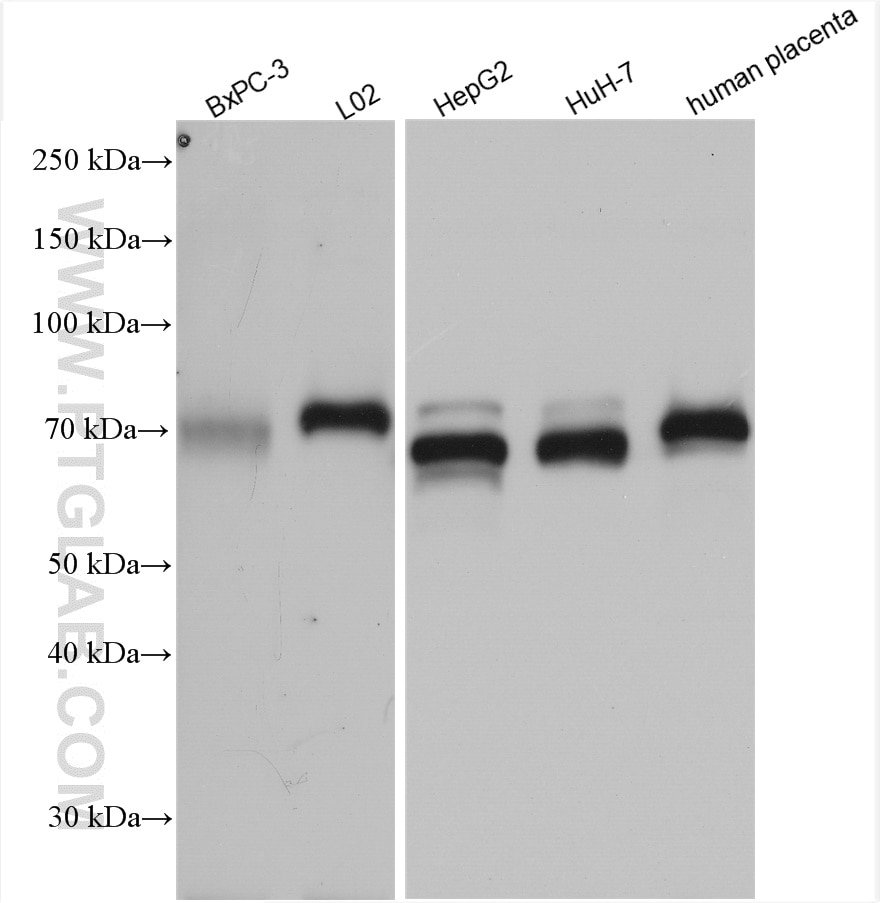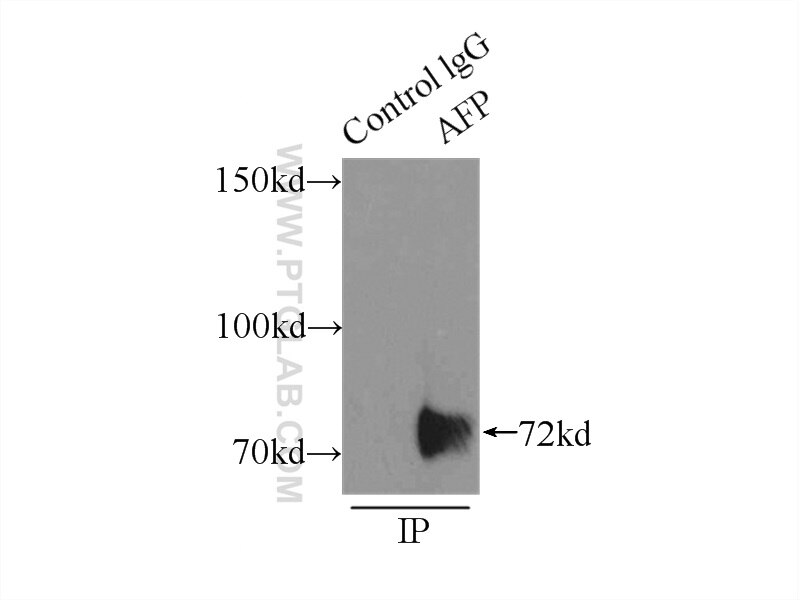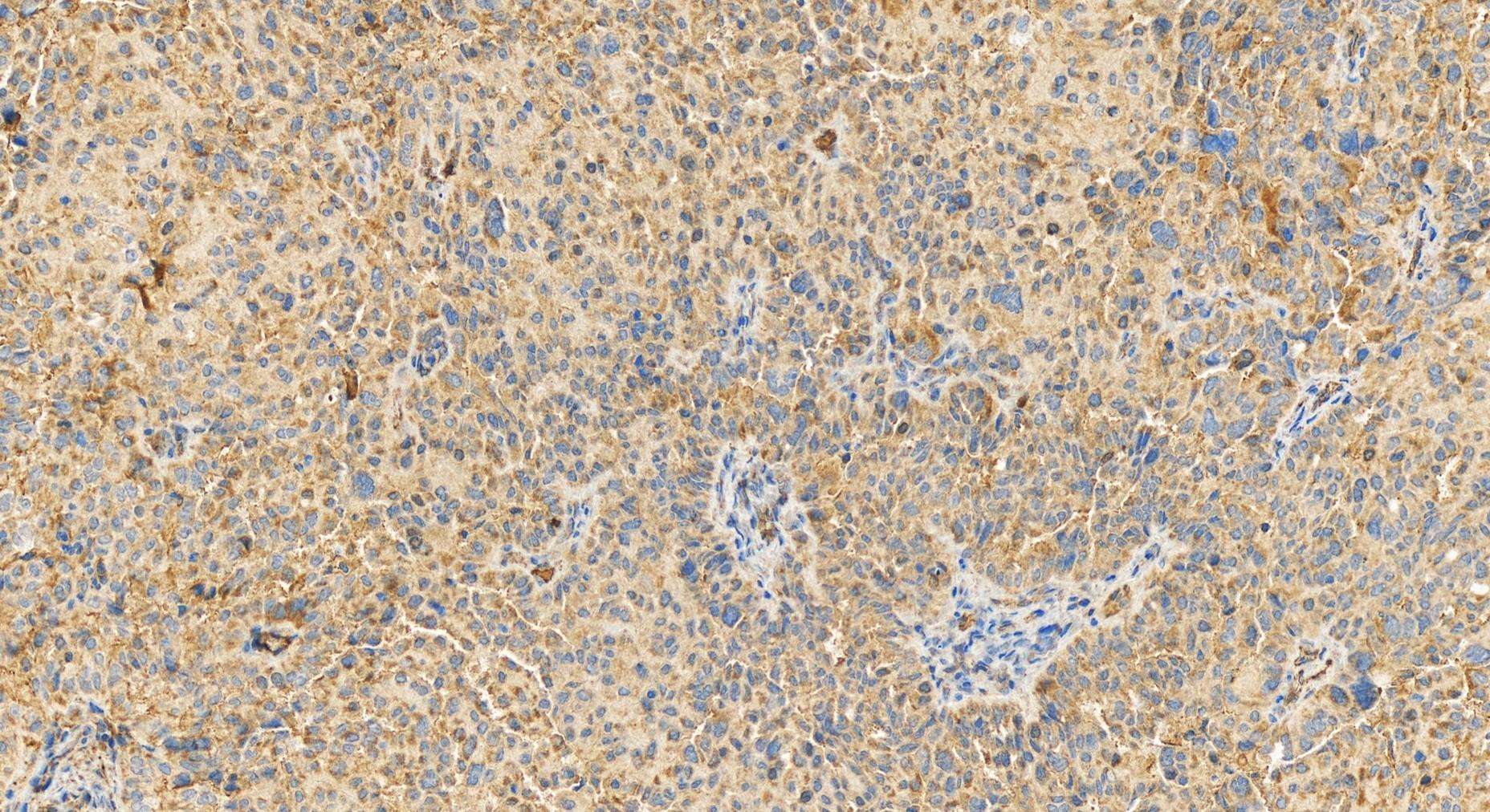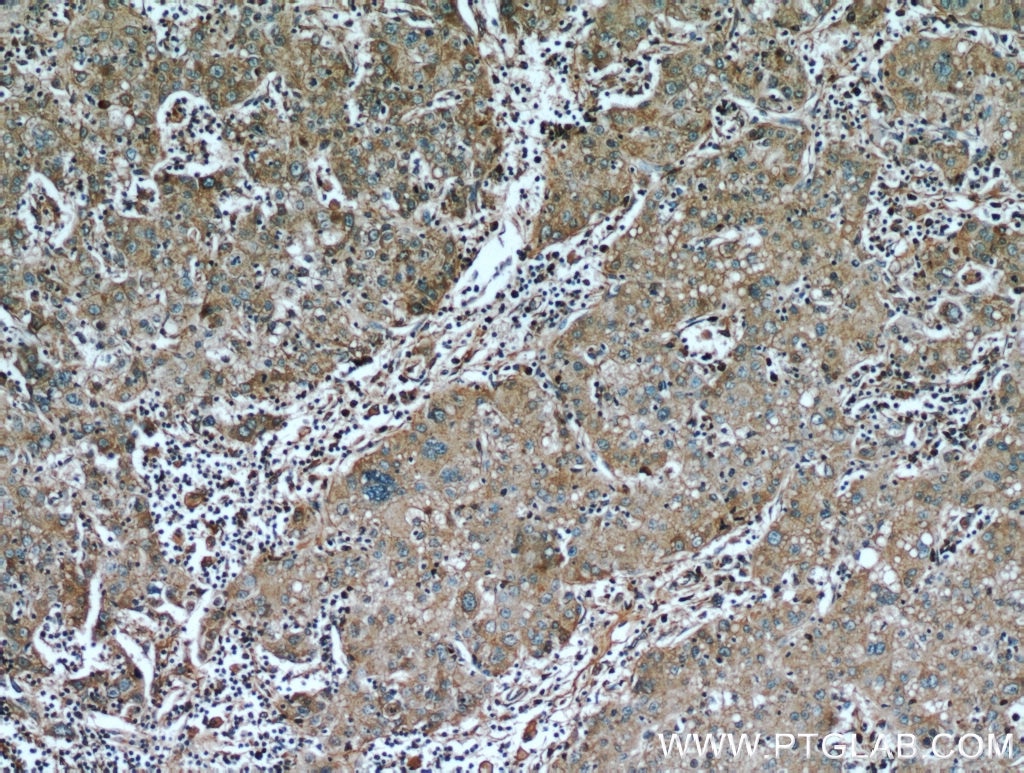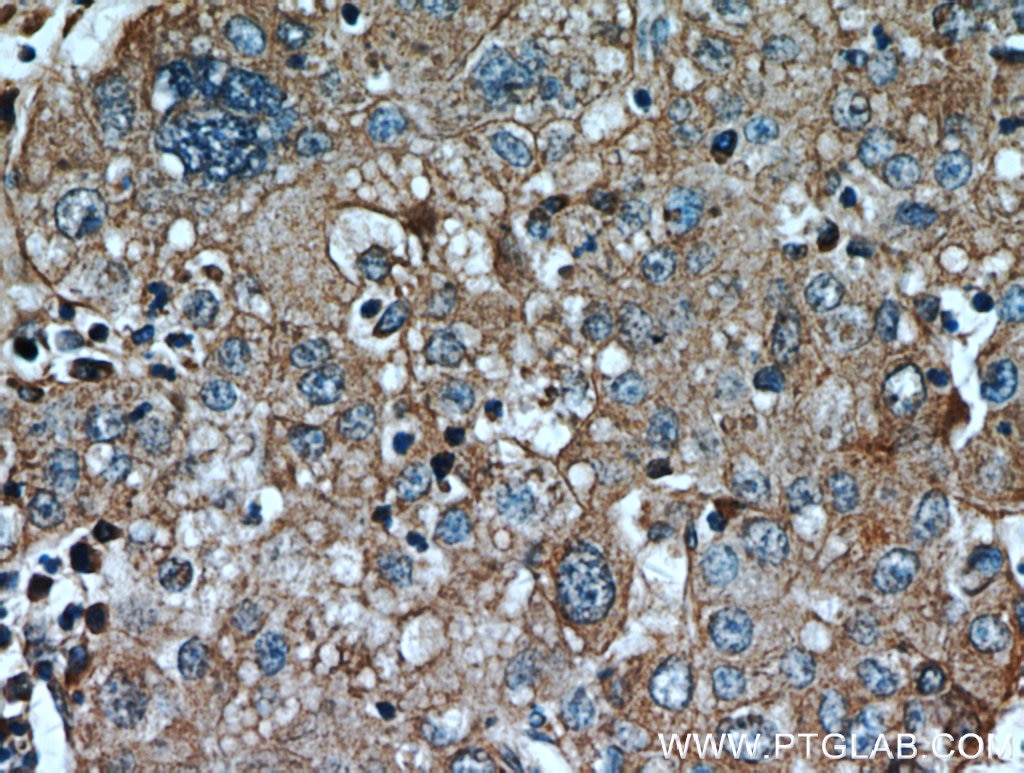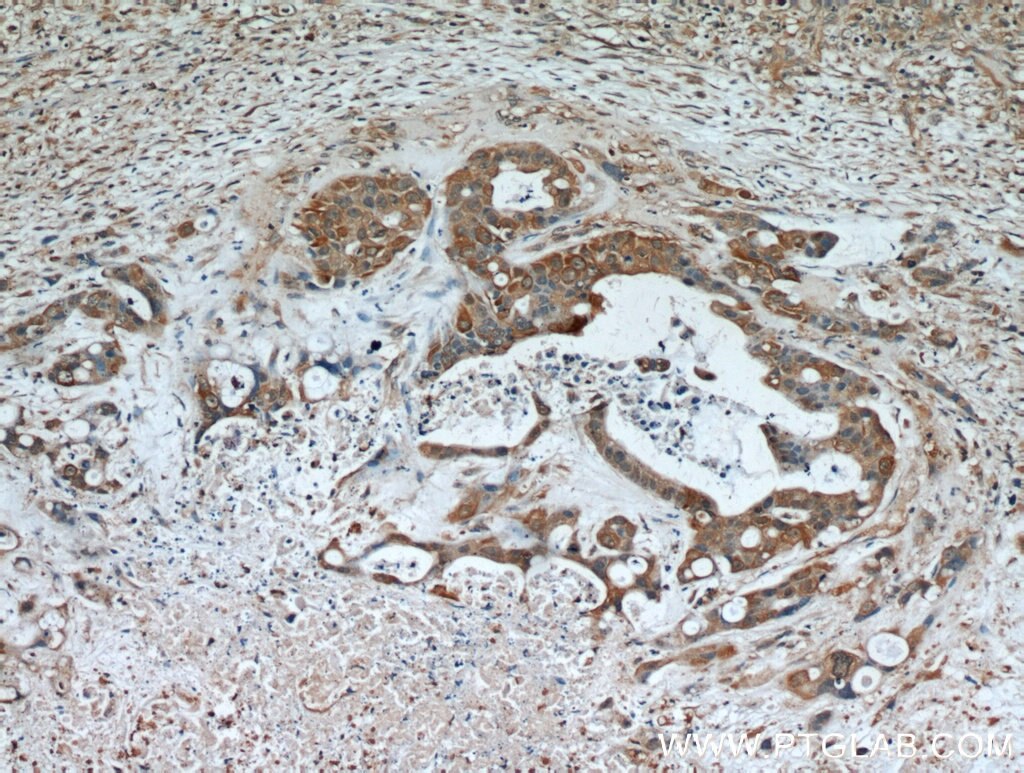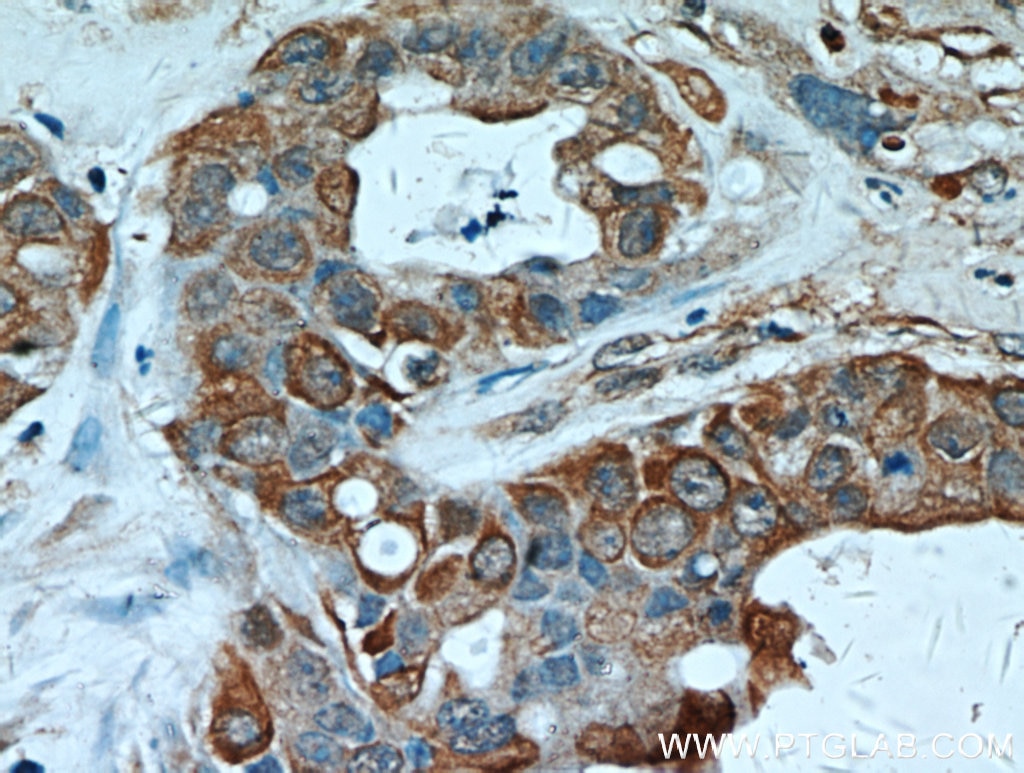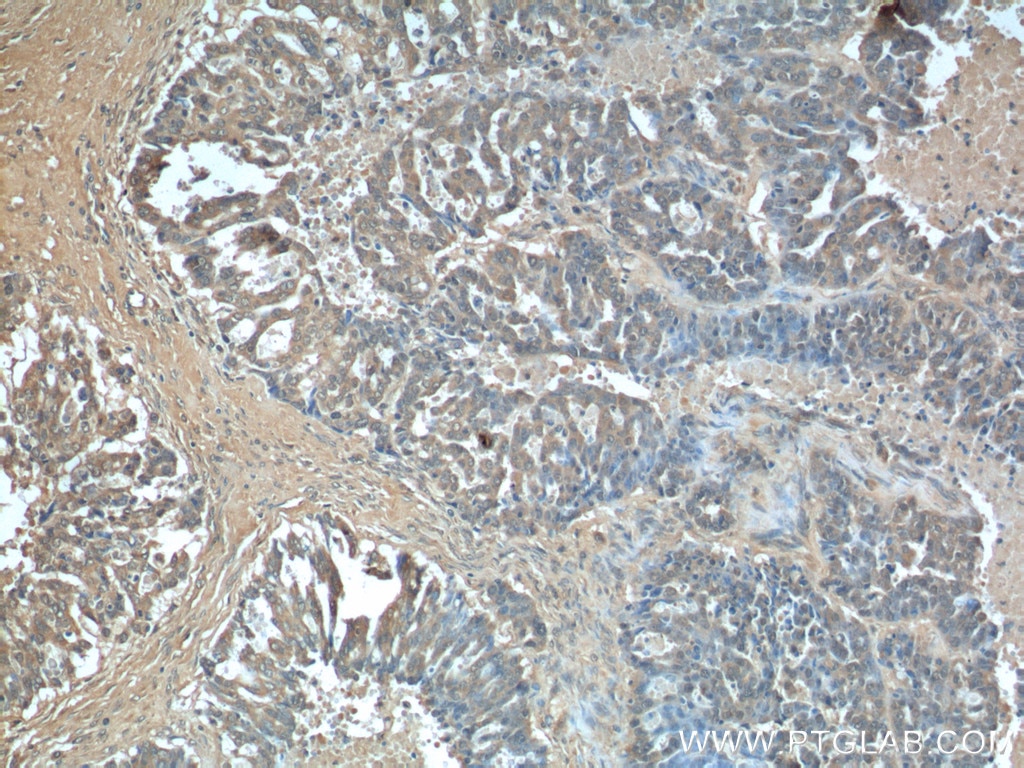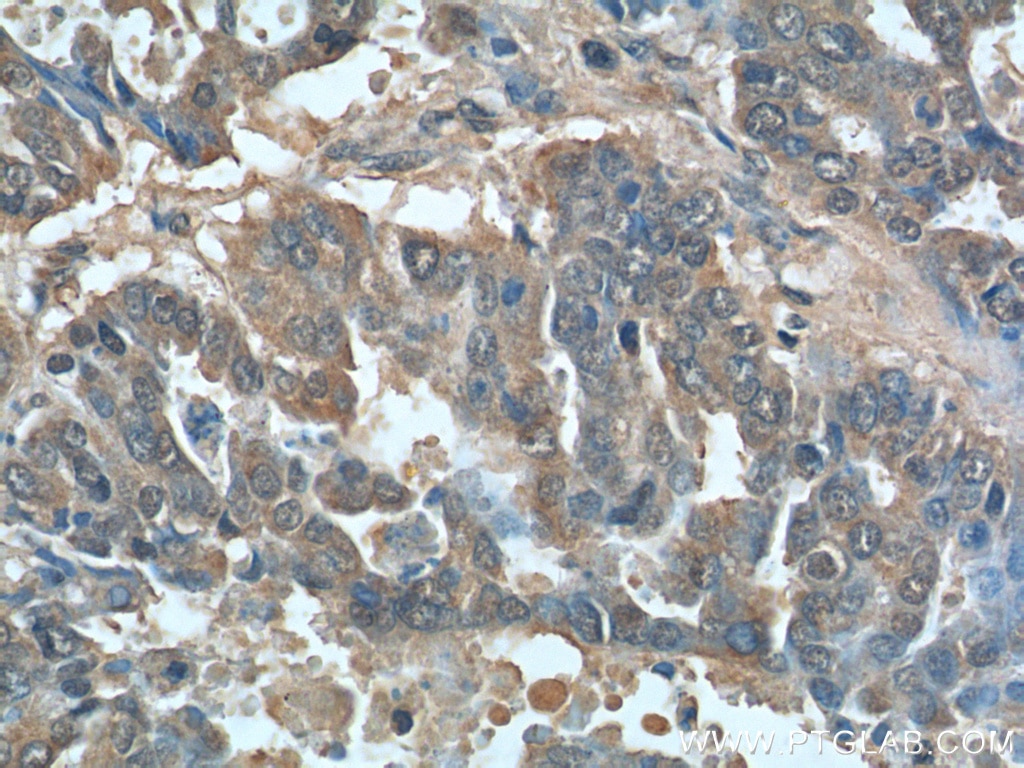Validation Data Gallery
Tested Applications
| Positive WB detected in | BxPC-3 cells, HepG2 cells, HuH-7 cells, L02 cells, HepG2cells, human placenta tissue |
| Positive IP detected in | HepG2 cells |
| Positive IHC detected in | human ovary cancer tissue, human liver cancer tissue, human ovary tumor tissue Note: suggested antigen retrieval with TE buffer pH 9.0; (*) Alternatively, antigen retrieval may be performed with citrate buffer pH 6.0 |
Recommended dilution
| Application | Dilution |
|---|---|
| Western Blot (WB) | WB : 1:2000-1:10000 |
| Immunoprecipitation (IP) | IP : 0.5-4.0 ug for 1.0-3.0 mg of total protein lysate |
| Immunohistochemistry (IHC) | IHC : 1:250-1:1000 |
| It is recommended that this reagent should be titrated in each testing system to obtain optimal results. | |
| Sample-dependent, Check data in validation data gallery. | |
Published Applications
| WB | See 36 publications below |
| IHC | See 50 publications below |
| IF | See 58 publications below |
| CoIP | See 1 publications below |
Product Information
14550-1-AP targets AFP in WB, IHC, IF, IP, CoIP, ELISA applications and shows reactivity with human samples.
| Tested Reactivity | human |
| Cited Reactivity | human, goat |
| Host / Isotype | Rabbit / IgG |
| Class | Polyclonal |
| Type | Antibody |
| Immunogen |
CatNo: Ag6089 Product name: Recombinant human AFP protein Source: e coli.-derived, PET28a Tag: 6*His Domain: 260-609 aa of BC027881 Sequence: LDVAHVHEHCCRGDVLDCLQDGEKIMSYICSQQDTLSNKITECCKLTTLERGQCIIHAENDEKPEGLSPNLNRFLGDRDFNQFSSGEKNIFLASFVHEYSRRHPQLAVSVILRVAKGYQELLEKCFQTENPLECQDKGEEELQKYIQESQALAKRSCGLFQKLGEYYLQNAFLVAYTKKAPQLTSSELMAITRKMAATAATCCQLSEDKLLACGEGAADIIIGHLCIRHEMTPVNPGVGQCCTSSYANRRPCFSSLVVDETYVPPAFSDDKFIFHKDLCQAQGVALQTMKQEFLINLVKQKPQITEEQLEAVIADFSGLLEKCCQGQEQEVCFAEEGQKLISKTRAALGV 相同性解析による交差性が予測される生物種 |
| Full Name | alpha-fetoprotein |
| Calculated molecular weight | 69 kDa |
| Observed molecular weight | 68-72 kDa |
| GenBank accession number | BC027881 |
| Gene Symbol | AFP |
| Gene ID (NCBI) | 174 |
| RRID | AB_2223933 |
| Conjugate | Unconjugated |
| Form | |
| Form | Liquid |
| Purification Method | Antigen affinity purification |
| UNIPROT ID | P02771 |
| Storage Buffer | PBS with 0.02% sodium azide and 50% glycerol{{ptg:BufferTemp}}7.3 |
| Storage Conditions | Store at -20°C. Stable for one year after shipment. Aliquoting is unnecessary for -20oC storage. |
Background Information
AFP (Alpha-fetoprotein) is a major plasma protein in the fetus and its concentration is very low in the adult (PMID:24120489). AFP can be detected at abnormally high concentrations in hepatocellular carcinomas as well as in the plasma and ascitic fluid of adults with hepatoma, indicating that AFP can serve as a tumor marker (PMID: 18669658). AFP is also a glycosylated protein and based on its binding capability to lectin Lens Culinaris Agglutinin (LCA), and total AFP can be separated into three different glycoforms, AFP-L1, AFP-L2, and AFP-L3. Core-fucosylated form of AFP (AFP-L3) is a more specific indicator than total AFP for HCC (PMID: 33128033, 35458505)
Protocols
| Product Specific Protocols | |
|---|---|
| IHC protocol for AFP antibody 14550-1-AP | Download protocol |
| IP protocol for AFP antibody 14550-1-AP | Download protocol |
| WB protocol for AFP antibody 14550-1-AP | Download protocol |
| Standard Protocols | |
|---|---|
| Click here to view our Standard Protocols |
Publications
| Species | Application | Title |
|---|---|---|
Cancer Cell Genomic and Transcriptomic Profiling of Combined Hepatocellular and Intrahepatic Cholangiocarcinoma Reveals Distinct Molecular Subtypes. | ||
Nat Commun ATAXIN-2 intermediate-length polyglutamine expansions elicit ALS-associated metabolic and immune phenotypes | ||
J Clin Invest Hepatocellular carcinoma originates from hepatocytes and not from the progenitor/biliary compartment. | ||
J Clin Invest HMGB1 links chronic liver injury to progenitor responses and hepatocarcinogenesis. | ||
Nat Commun Whole-exome sequencing of alpha-fetoprotein producing gastric carcinoma reveals genomic profile and therapeutic targets. |

